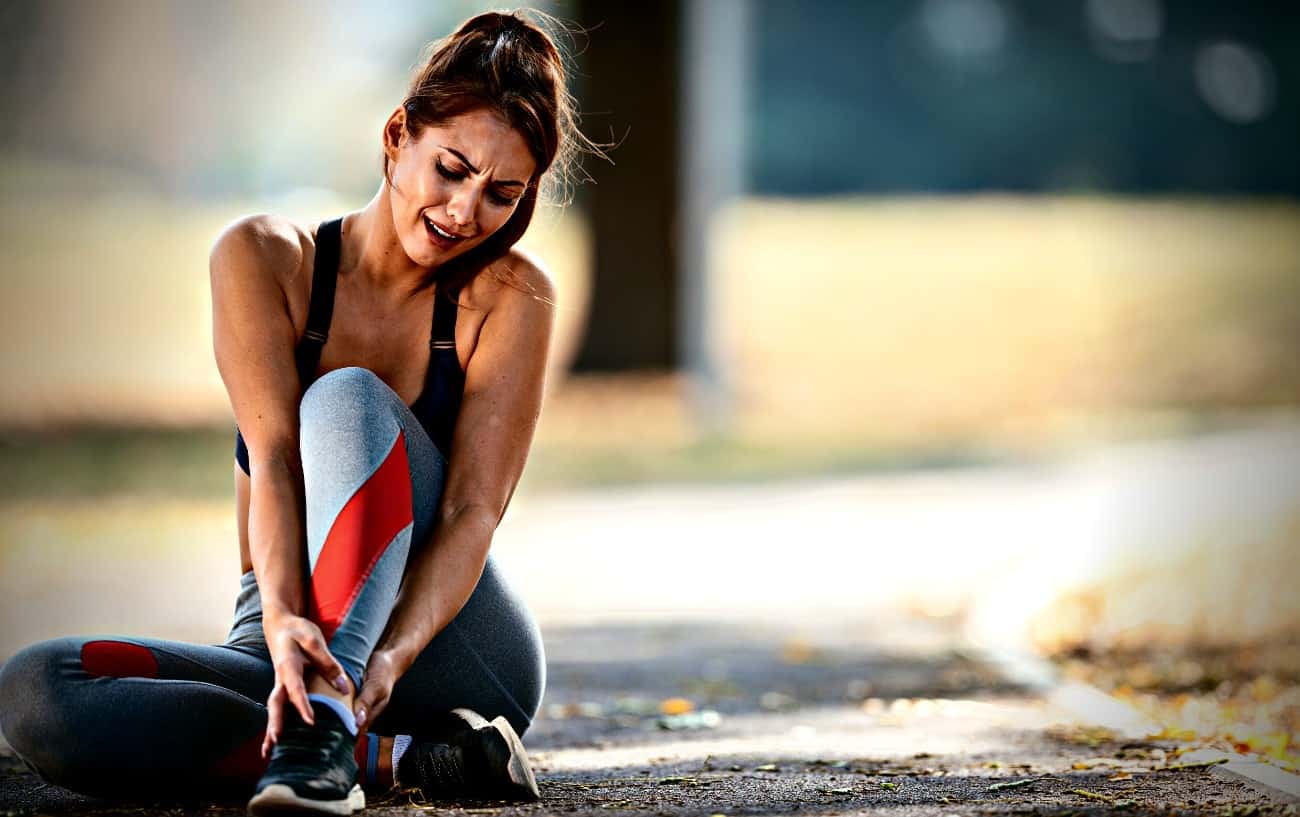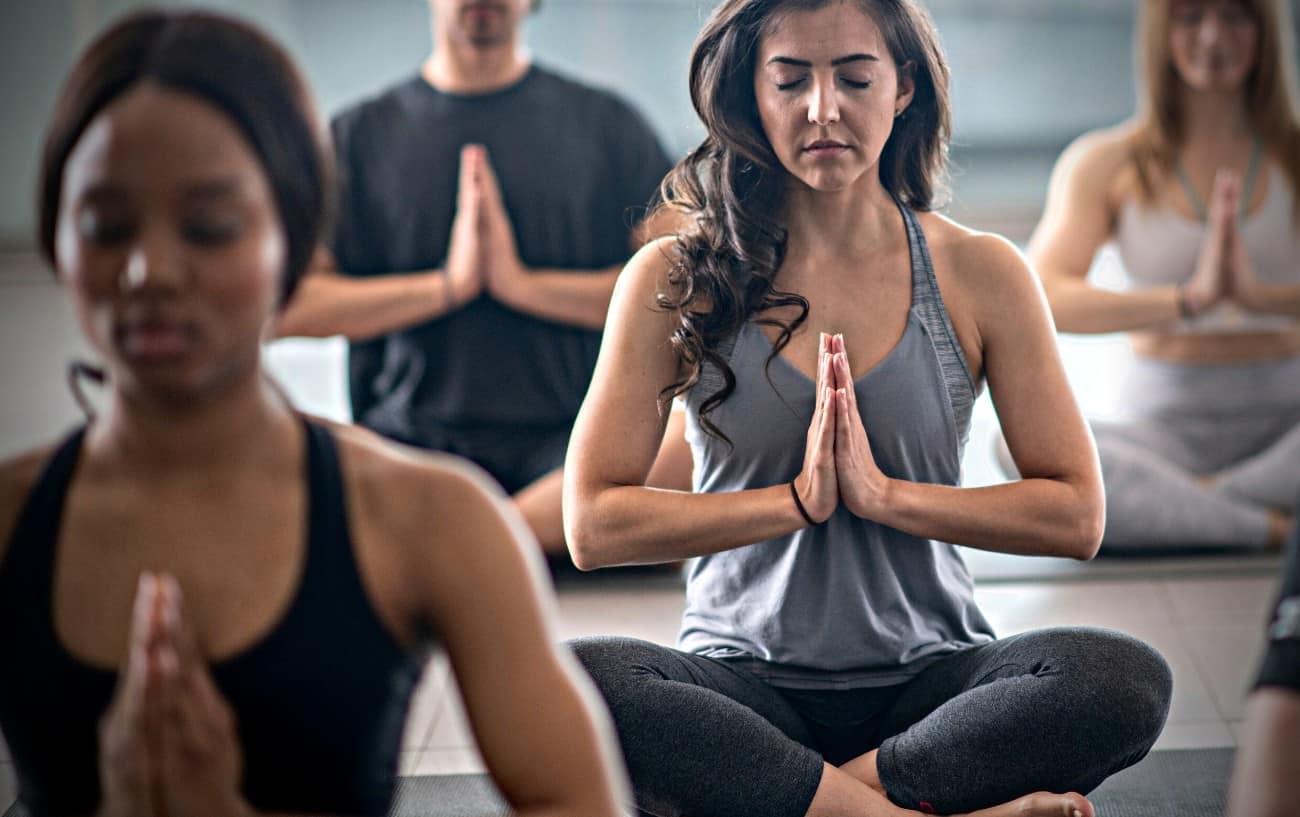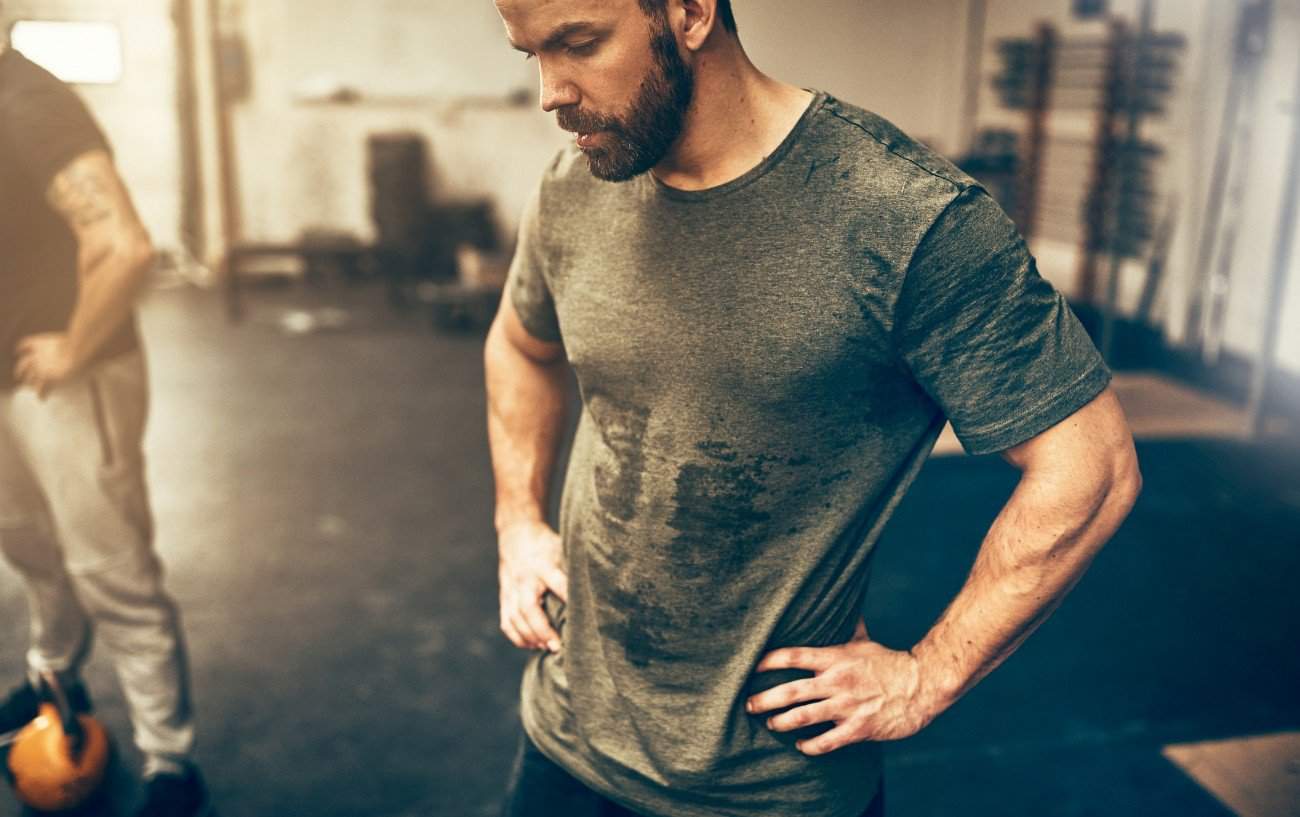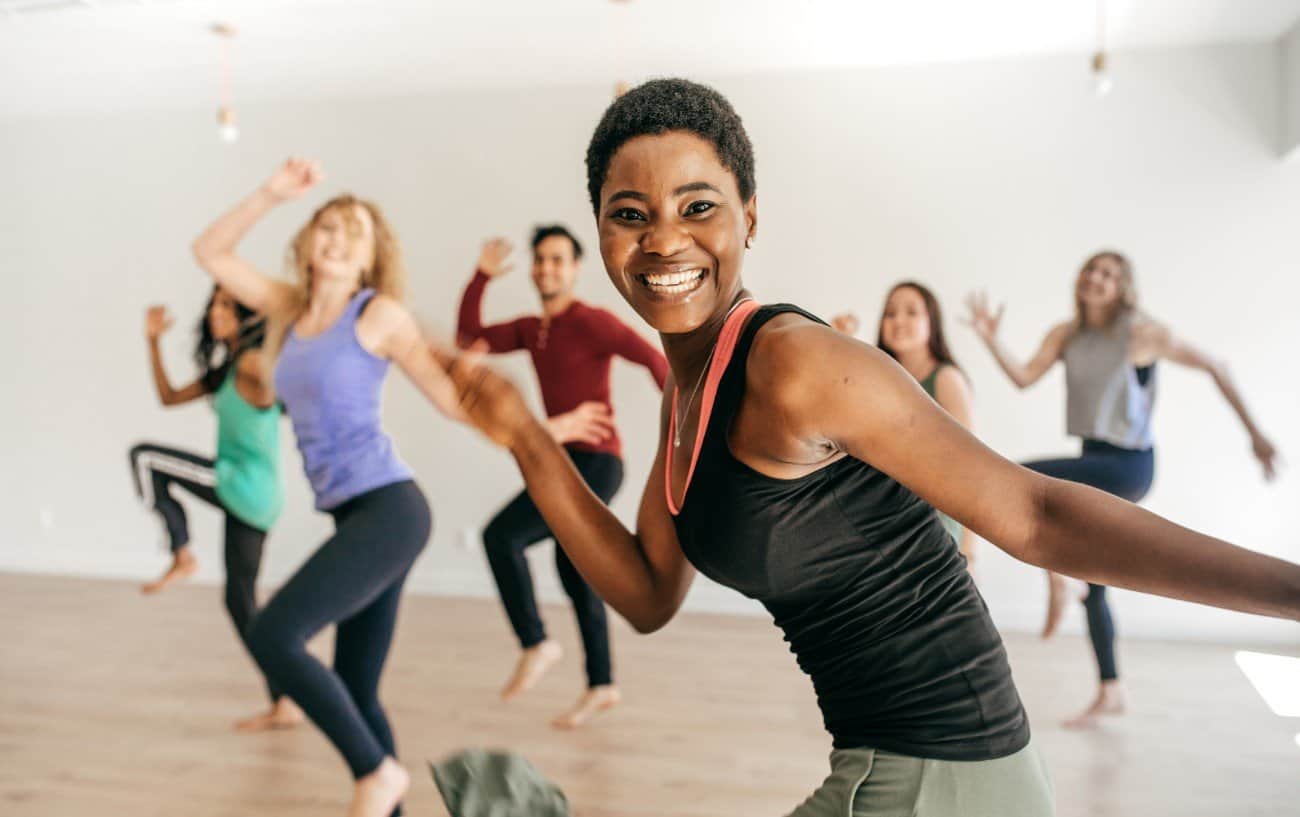We all like to enjoy ourselves in one way or another, and for many adults, an alcoholic beverage or two provides just the social lubrication and mental relaxation they need to unwind and have a good time.
However, once in a while, your best intentions to enjoy just a drink or two end up spiraling into a bit more of a bender if you will, and before you know it, you’re feeling quite a bit more buzzed than you expected.
As long as you’re safe and don’t get behind the wheel of a car, a night of too much drinking isn’t necessarily the end of the world, but even after a good night’s sleep, you might find yourself waking up with a hangover.
Although there are many things touted to be hangover cures, perhaps one of the most common is that you should exercise when hungover to “sweat out the alcohol.”
But do cardio and exercise cure hangovers? Should you exercise when hungover? What are the pros and cons of working out when you’re hungover?

Does Exercise Cure Hangovers?
At one time or another, almost everyone has heard that exercise can cure a hangover and mitigate the effects of alcohol. The thing you’ve likely heard is that if you get the body moving the next day, you can sweat out the alcohol and stave off the symptoms of a hangover.
However, there’s really no evidence to suggest that exercising will help you metabolize your night of drinking any faster or speed up your recovery back to baseline.
Therefore, in short, exercise does not cure a hangover.
You might feel temporarily or somewhat better after working out when hungover, but this is not due to processing the alcohol or curing the hangover by moving your body.
Rather, exercise often provides short-term symptom relief because physical activity increases circulation, makes you feel more alert, reduces tiredness, produces endorphins, and gives you something productive to do instead of languishing in your hungover state.
Risks of Working Out Hungover
Some people feel like hitting the gym to lift weights, lacing up their shoes to get a light jog in, or even just some gentle stretching and light exercise helps assuage some of the guilt or help negate some of the negative impact a night of heavy drinking had on the liver and body as a whole.
However, there’s little evidence to suggest that a low-impact light workout while hungover will actually speed up your body’s recovery, “detoxify” from all the alcohol, or get you back to feeling like your normal human self rather than as if you were hit by the hangover bus.

In fact, working out hungover can potentially make you feel worse, and has various downsides.
The risks of exercising when hungover include the following:
#1: Exercising When Hungover Can Exacerbate Dehydration
Alcohol is dehydrating for the body because it’s a diuretic, which means it increases urination and the excretion of fluids through sweat above and beyond the volume of liquid taken in with the alcoholic drink.
Many of the symptoms of a hangover, such as dry mouth and headaches, are actually largely due to dehydration brought on by alcohol, not the alcohol itself.
Exercise is also dehydrating because you lose fluids in sweat and air vapor through heavy breathing.
Therefore, unless you’ve done a good job rapidly rehydrating your body from a day or night of throwing back lots of alcohol, working out hungover can further dehydrate the body.
Unless you drink plenty of water and you’ve hydrated fully to the point that your urine is a pale yellow color, doing any form of exercise, even gentle exercise, when hungover can actually make you feel worse because it will lead to more significant dehydration, exacerbating many of the hangover symptoms you’re already contending with.
If you find yourself dealing with dehydration after a night of drinking, try coconut water. It tastes great and is packed with electrolytes, which will also help with those pesky hangover symptoms.

#2: Exercising When Hungover Can Increase the Risk Of Injuries
There’s a good reason that one of the field tests a police officer may use to assess your state of intoxication is to see how well you can walk in a straight line heel to toe or accurately touch your nose with one try.
Alcohol consumption makes you more clumsy and uncoordinated.
If you’ve ever had a few too many adult beverages, you may even have firsthand experience with feeling like the room is spinning or vibrating a bit or that you just don’t have your normal, keen sense of control over your body.
Now, take that feeling and add exercise to the mix.
Trying to lift weights, ride a bike, or run along a trail with rocks and roots can be a recipe for disaster.
Without sharp kinesthetic awareness and control over your body, you’re more apt to accidentally trip, drop a dumbbell on your finger or foot, or injure yourself with improper movement patterns.
If you’re feeling clumsy, you should definitely skip your workout when hungover.

#3: Exercising When Hungover Further Stresses Your Body
The body perceives alcohol as a toxin because the toxins acetate and acetaldehyde are produced as the body starts to metabolize alcohol.
Therefore, alcohol acts as a stressor on the body. Although exercise is good for the body, working out, especially an intense workout like HIIT, also taxes the body. Accordingly, exercise also acts as a physiological stressor.1Validate User. (n.d.). Academic.oup.com. https://academic.oup.com/jcem/article/93/3/750/2598270
By stacking these two stressors on top of one another, exercising when hungover can compound the increase in cortisol and the resultant stress you are putting your body through.
This may suppress your immune system, increase inflammation, increase the risk of injury, and/or cause significant fatigue.
#4: Concentration Is Difficult When Exercising When Hungover
Brain fog, which is characterized by a lack of concentration and mental acuity, is a side effect of over-imbibing in alcohol.2Topiwala, A., Allan, C. L., Valkanova, V., Zsoldos, E., Filippini, N., Sexton, C., Mahmood, A., Fooks, P., Singh-Manoux, A., Mackay, C. E., Kivimäki, M., & Ebmeier, K. P. (2017). Moderate alcohol consumption as risk factor for adverse brain outcomes and cognitive decline: longitudinal cohort study. BMJ, 357, j2353. https://doi.org/10.1136/bmj.j2353
Not only can this make it difficult to concentrate while working out hungover (which, in turn, can limit how much you’re actually getting out of the workout), but it can also impair your decision-making ability and increase the risk of injury.
It just takes one split-second impulsive decision or lack of focus to injure yourself or someone else exercising in your vicinity.
You could drop a dumbbell, fall off a bike, step off a curb running, and so on.

Pros of Working Out Hungover
We all know that there are tons of physical and mental health benefits of exercise, so pretty much any time you get a workout in, you’re going to have some rewards.
Benefits of exercise when hungover include decreasing stress, increasing circulation, reducing stiffness or tightness in joints and muscles, increasing blood flow, burning calories from all those drinks you enjoyed (which is great if you’re goal is weight loss), and boosting your mood.
For some people, getting in a workout after a night of too much drinking has a valuable psychological effect on well-being that shouldn’t be overlooked.
It’s common to feel at least a little guilty or disappointed in yourself if you drank way too much, and perhaps even ended up binging on fast food, sweets, or other unhealthy options that aren’t normally a mainstay in your diet.
By doing some exercise the next morning, you can feel like you’re getting back on track with your health and fitness goals and doing something good for your body.
In this way, working out when hungover can serve as a mental reset to forgive yourself from the overindulgence and move forward in a positive mind space.

Should You Exercise When Hungover?
So, after weighing the pros and cons of working out when hungover, where do we land? Should you exercise when hungover?
It really comes down to using your best judgment based on how you feel, and whether you think you can minimize the risks to ensure your workout will be safe.
If you are going to exercise hungover, make sure you’ve hydrated as much as possible, including electrolytes in your rehydration fluids. Choose a type of exercise that you can perform safely, whether that’s a light jog, resistance band workout, or just getting out for a walk and some fresh air.
For example, a stationary exercise bike is safer than an outdoor bike because your risk of falling is much less, and you won’t be out in traffic, where a poor decision or a lack of concentration can severely injure you.
Avoid exercises like hot yoga or a very vigorous spin class because a high heart rate and excessive sweating will increase the risk of dehydration; which can make a headache worse.

Walking, easy jogging in a safe area, light weights, gentle yoga class or Pilates, elliptical trainer, or using a rowing machine are examples of good choices for exercise when you’re hungover.
Whether or not you choose to exercise while hungover, in most cases, your hangover should resolve in about 24 hours, though the worst hangovers may last up to 72 hours.3Verster, J. C. (2008). The alcohol hangover-a puzzling phenomenon. Alcohol and Alcoholism, 43(2), 124–126. https://doi.org/10.1093/alcalc/agm163
Therefore, even if you have to skip your workout the day after you drank too much, you should be able to get back to your training plan the following day, putting it all behind you.
Taking the day off when you’re hungover may be a safer option. If you do choose to exercise when hungover, use your head (to the best of your ability) and be very careful.
To help you rehydrate, take a look at our complete hydration guide.













